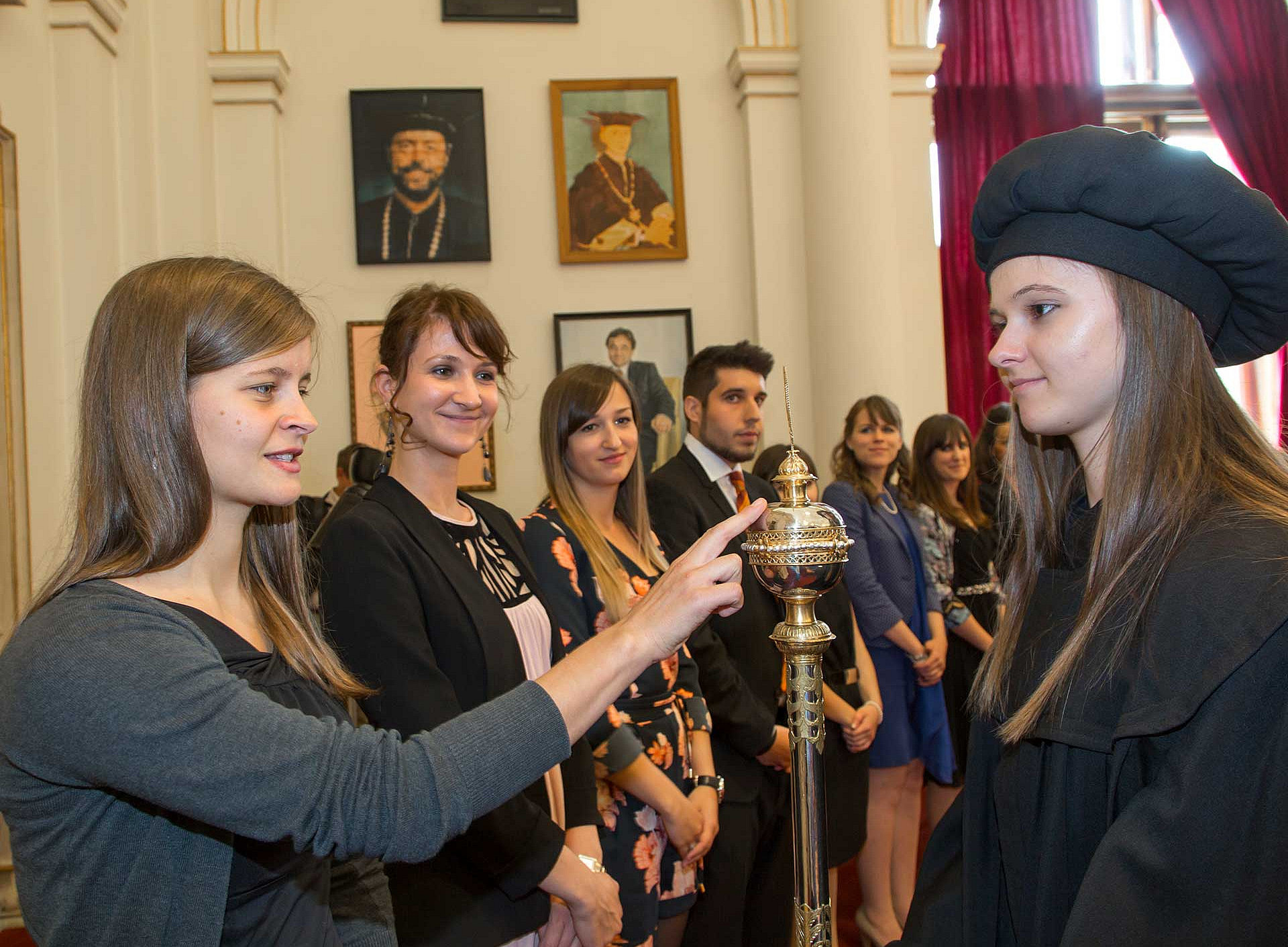Entering a lecture theatre for the first time and holding the UNIGRAZcard in your hands or on your smartphone - these days, first-year students are experiencing what tens of thousands of others have already gone through. These are fixed actions that recur year after year and are firmly anchored in the university cycle.
Very special rituals can be found at academic ceremonies, such as graduations, the awarding of prizes and honorary doctorates, the appointment of honorary senators or citizens, the inauguration of rectors, etc.
Centuries of tradition
Gerhard Mandl has helped to organise many of these at the University of Graz, as a kind of master of ceremonies. As a legal expert, he knows the exact procedures as well as where and how they are regulated. The Universities Act says very little about this. "The universities are given a lot of room for manoeuvre," explains Mandl. At the University of Graz, the statutes define the categories of the various ceremonies.
The organisation itself follows a tradition based on doctorates, which is often centuries old and is passed on by officials. "In the past, it was individual professors who upheld the traditions. Today, it's the administrative staff who carry it on," reports the legal expert.
From welcome to buffet
Certificates always play a central role on such occasions, as they document the event for posterity. According to Gerhard Mandl, symbolically and once also legally charged insignia such as the sceptre and rector's chain as well as gowns emphasise the special nature of the event, which stands out from the usual university routine.
The sequence of speeches seems to be immovable. The welcome, greetings, laudatory speech and words of thanks from the honouree form the framework, as does the musical accompaniment to suit the personal taste of the honouree. The ceremony concludes with an entry in the book of honour, an invitation to a buffet and -
even that is now part of the ceremony," smiles Mandl - the obligatory group photo.
Even in difficult times, ceremonies and their rituals have added value. "Because they convey continuity and stability," Gerhard Mandl recalls the Covid pandemic, during which celebrations were held at the University of Graz despite complicated precautions.
